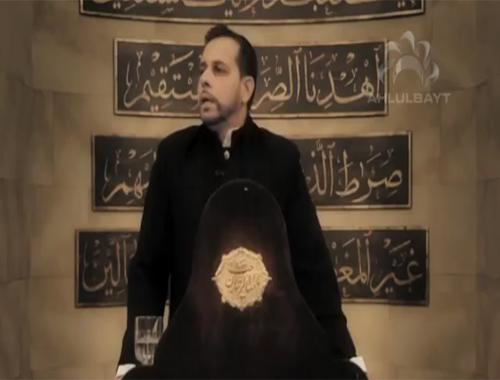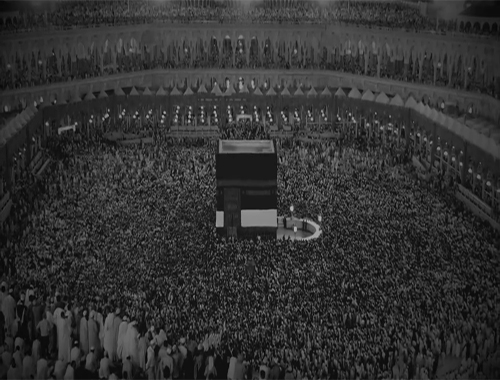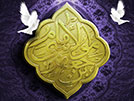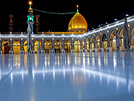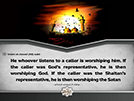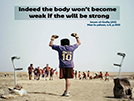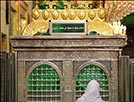The Thirty-Second Greater Sin: IsrÄf
- Details
- Hits: 3518
Chapter 34
The Thirty-Second Greater Sin: IsrÄf
--------------------------------------------------------------------------------
The thirty-second sin, which has been mentioned in the Qur’an and traditions as a Greater sin, is IsrÄf or wasteful expenditure. It is enumerated among the Greater Sins in the tradition of Fazl Ibn ShazÄn from Imam RiÄa (a.s.) and also in the tradition of Amash from Imam Ja’far as-Sadiq (a.s.). The Qur’anic verses and traditions, both, confirm that wasteful expenditure is a Greater sin. First we shall quote these ayats and traditions and then delve into the various aspects of this sin. The Holy Qur’an says,
“…and eat and drink and be not extravagant; surely He does not love the extravagant.”
(Surah al-Ar’Äf 7:31)
The above ayat suffices to show the dislike of Almighty Allah (S.w.T.) for the extravagant people. According to some exegesists of the Qur’an one who is not loved by Allah (S.w.T.) is doomed to perdition because the love of Allah (S.w.T.) implies Divine rewards.
According to TafsÄ«r Majmaul Bayan, Bakhti Shoa was the personal physician of HarÅ«n al-Rashid. He was a Christian. One day he asked Waqidi, “Does your Holy book contain any medical knowledge?” Waqidi replied, “The Almighty Allah (S.w.T.) has condensed the complete medical knowledge in a single verse,
“...And eat and drink and be not extravagant.”
“Did your Prophet mention anything about this branch of knowledge?” asked the physician.
“Yes,” said Waqidi, “he has described the medical sciences in a brief sentence.
‘The stomach is the house of pain and abstinence is the most important medicine. Everyone should be given the amount (of food) he needs.’”
Upon hearing this, the Christian remarked, “Your Book and your Prophet have not omitted anything from medical science and Galen (the Greek physician) had nothing more to say.”
The Almighty Allah (S.w.T.) says in the Qur’an,
“...eat of its fruit when it bears fruit, and pay the due of it on the day of its reaping, and do not act extravagantly; surely He does not love the extravagant.”
(Surah al-’An’Äm 6:141)
A verse in Surah GhÄfir states,
“Thus does Allah cause him to err who is extravagant, a doubter.”
(Surah GhÄfir, 40:34)
Similarly,
“...the extravagant are the inmates of the fire.”
(Surah GhÄfir, 40:43)
Also,
“And thus do We recompense him who is extravagant and does not believe in the communication of his Lord; and certainly the chastisement of the Hereafter is severer and more lasting.”
(Surah TÄ HÄ, 20:127)
Allah the Almighty again says,
“...and do not squander wastefully, surely the squanderers are the followers of the shaitans and the Shaitan is ever ungrateful to his Lord.”
(Surah al-‘IsrÄ’, 17:26-27)
Tafsīr Minhaj cites the extravagance and prodigality of the pre-Islamic Arabs. When the rich among them invited someone for dinner, they slaughtered several camels to show off their wealth. The Almighty Allah has denounced their extravagance and has said that they squander their wealth like the insane.
Imam Ja’far as-Sadiq (a.s.) says,
“Certainly, moderation is liked by Allah and He dislikes extravagance; even in the throwing away of a date-seed, because that too can be used (Arabs feed date-seeds to camels). And the same is with the throwing away of water left after drinking.” (Because even this can be put to some use).
(Wasa’il ul-Shia)
The Imam (a.s.) has also said:
“Fear Allah and be not extravagant nor miserly. Be moderate. Verily, extravagance is waste. The Almighty Allah says, ‘And do not waste!’ Certainly Allah has never punished the people who practise moderation.”
(Mustadrak ul-Wasa’il)
It means that the Divine punishment is reserved for both the squanderer as well as the miser. Bushr Ibn Umar says, “I went to Imam Sadiq (a.s.) and he placed some dates before us. We began to eat the dates and some of us were throwing away the seeds. He stopped them and said,
‘This is waste, Allah does not like corruption.’”
(Mustadrak ul-Wasa’il)
In a tradition, from the book Faqih, the Holy Prophet (S) describes the various prohibited acts and states that the house one builds extravagantly and for show-off will be raised to seven floors by the Almighty Allah on the Day of QiyÄma. Allah (S.w.T.) will kindle that building and make it into a necklace and place it on the neck of that person. Then He will toss him into the fire. The people requested the Holy Prophet (S) to explain how a person can build a house for show-off. The Prophet (S) explained that it denotes a house, which is more than needed, and one that is constructed to show the superiority of the owner over other Muslim brothers.
Amir ul-Mu’minÄ«n ‘Ali (a.s.) says:
“Whenever Allah intends goodness from His servants, He reveals to him to live moderately and spend his life in the best way and keeps him away from extravagance and prodigality.”
(Mustadrak ul-Wasa’il)
Hazrat Imam Ja’far as-Sadiq (a.s.) says:
“Do you think if Allah has bestowed someone with wealth, it is because he is His beloved? And if He has given less to someone it is because he is low? No! It is not so. Whatever wealth is there, it all belongs to Allah. Allah gives it to whomsoever He wishes as a trust and He has permitted the trustee to eat, drink, wear clothes, marry, and ride from it, (but) in moderation. If he has excess he must distribute it among the poor and fulfill their needs. Then whoever follows the Divine commands, whatever he has eaten, drunk, worn, married and riden in moderation; all this is lawful for him and if he does not act upon it, everything is HarÄm.”
Then Imam (a.s.) recited the ayat,
“And do not be extravagant, Allah does not love the squanderers.”
Then he continued,
“Do you think it proper that a person purchases from the wealth which Allah has entrusted him, a horse costing 10,000 dirhams when he could have bought an animal worth 20 dirhams?; and it would have sufficed for him. Or if he purchase a slave-girl at a cost of a thousand dirhams when he could have got one in twenty dinars and quite sufficient for him? When the Almighty says,
‘Do not spend wastefully.’
(One who wastes and squanders money has done Khayanat in the trust of Allah (S.w.T.)).
(Mustadrak ul-Wasa’il)
Abbasi says that he asked Imam RiÄa (a.s.) as to how much he should spend on his family? Imam (a.s.) replied,
“Between the two which are disliked.”
I said, “I don’t know what those two are?”
“Certainly Allah hates extravagance and He hates miserliness.”
Imam (a.s.) then recited the ayat,
“And (the people are) those who are neither extravagant nor miserly. They are the moderate (people).”
(Wasa’il ul-Shia)
Imam Ja’far as-Sadiq (a.s.) has said that if a person is extravagant and later becomes poor due to it, his invocations will not be accepted. Then if he says “O Allah grant me health,” Allah (S.w.T.) says, “Had I not ordered you moderation?”

